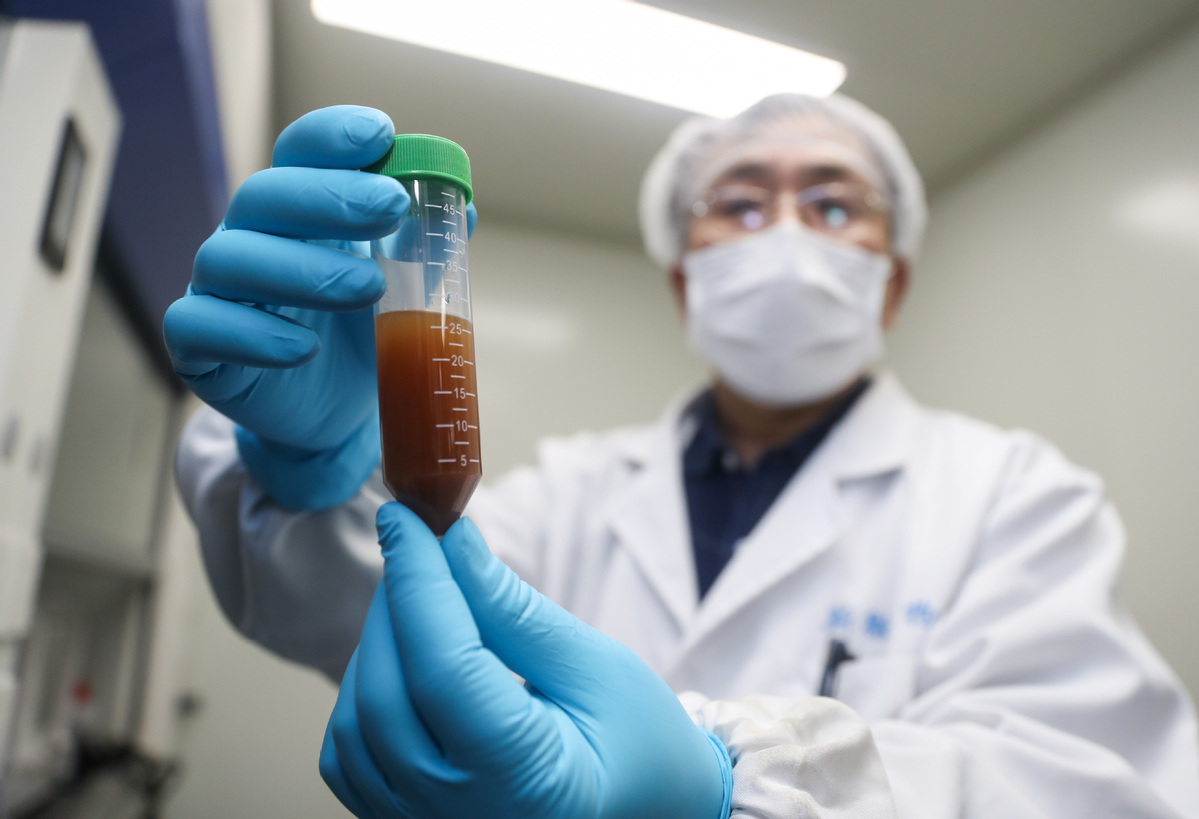Nations join hands to find speedy cure


New treatments
Since the outbreak, the National Institutes of Health in the US along with around a dozen US biotech companies, have announced vaccine or drug development initiatives for the novel coronavirus. But a majority of are still in preclinical stages.
Mark Denison, a virologist at Vanderbilt University in Nashville, Tennessee, told the journal Science that remdesivir has to be administered early in order to have significant impact on the disease.
An ideal treatment would be to combine drugs like remdesivir and monoclonal antibodies, he said. Monoclonal antibodies are lab-made molecules that can mimic a person's immune system to accurately attack pathogens, such as cancer cells.
US biotech companies such as Regeneron Pharmaceuticals and Vir Biotechnology have announced they are creating such antibodies to target the novel coronavirus, but it will likely take months before they can carry out clinical trials.
Chinese and US researchers are also working together to develop a vaccine against the virus, which included experts from Baylor College of Medicine in Houston, the University of Texas, and Shanghai's Fudan University.
Song Zhiheng, deputy director of Zhejiang province's Science and Technology Department, said scientists have isolated 10 viral strains that can be used to create vaccines.
A conventional vaccine consists of an inactivated virus or its protein that can be injected into the body to train the immune system to recognize the pathogen and produce antibodies against it in case of encountering the real virus in the future.
Last week, the Eighth People's Hospital in Guangzhou, Guangdong province, said they have produced a drug called pneumonia-I that can significantly reduce symptoms of patients with mild cases of the novel coronavirus.
The hospital said the drug had successfully lowered fevers in all 50 patients, with no cases of their illnesses intensifying. After a week of clinical observations, around 50 percent reported no coughing and sore throats, and nearly 70 percent no longer experienced fatigue.
The drug is currently awaiting registration and approval, the local medical product authority said. Once approved, it can be quickly manufactured by local pharmaceutical companies to meet local patients' needs.
Lu Shan, a medical professor at the University of Massachusetts, told China News Weekly that SARS and the novel coronavirus shared many similarities, and by building on previous vaccine research on SARS, vaccine development for the new virus should see some progress soon.
"We don't have any technical difficulties producing a vaccine, but we need time to test it on animals and ensure safety," he said.
- Beijing courts boost efforts to resolve livelihood-related cases
- Reminder tips from Weifang police spark buzz on Xiaohongshu
- Former head of national tobacco body stands trial on bribery charges
- China warns DPP's attempt to seek 'Taiwan independence' will be futile
- Consistent progress seen in environmental protection
- Former head of China's State Tobacco Monopoly stands trial for graft, abuse of power





































